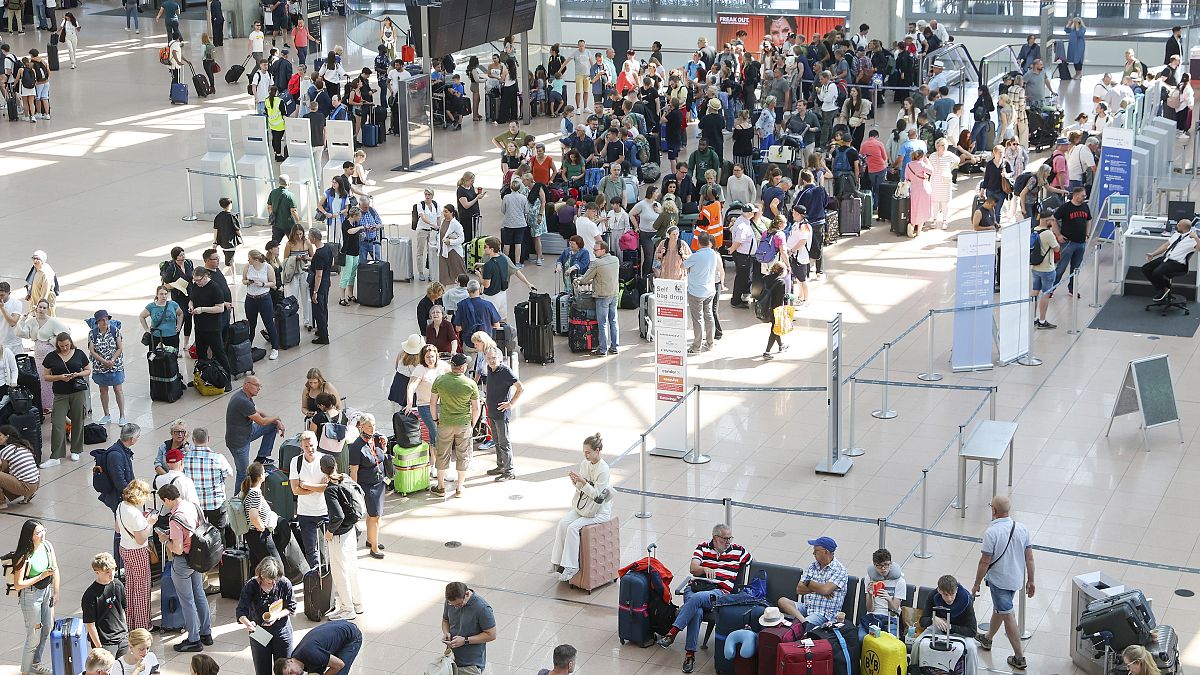The glitch was caused by a corrupted update which caused computers running Windows to crash, causing havoc across much of the world.
Microsoft has estimated that around 8.5 million computers around the world were affected by the recent global IT outage.
It’s the first time the company has put a figure on the scale of the outage and suggests it could be the worst cyber event in history.
On the official Microsoft blog, the company said that while the bug affected less than one percent of all computers running Windows, “the broad economic and societal impacts reflect the use of Crowdstrike by enterprises that run many critical services”.
The glitch was caused by a corrupted update issued by security company Crowdstrike which caused computers running Windows to crash.
That caused havoc across much of the world from Thursday into Friday with flights unable to take off or land, some businesses unable to take card payments and hospitals and clinics having to cancel operations.
Crowdstrike’s CEO George Kurtz apologised for the chaos and said late on Friday that the company had issued a fix and that computers were slowly returning to normal but warned it could be “some time” before all systems were running normally.
“I wasn’t that surprised that an accident caused severe global digital disruption. I guess I was a little surprised that the cause of it was a software update from a very well-respected cybersecurity company,” said Ciaran Martin, the former Head of the UK’s National Cyber Security Centre.
“We’ve talked for a long time in the industry about the inherent fragility of foundational parts of the internet, these little bits of activity and infrastructure that underpin the whole thing and if they go wrong they can have really serious global consequences”.
Meanwhile, the former head of cyber at the UK’s intelligence and security organisation GCHQ stressed the outage highlighted the scale of dependency most people have on their computer systems and the devastating impact that disruptions like this can have.
“It does emphasise that we live in a world of dependency and vulnerability and that disruption can and will happen and IT is at the core of our day to day operations, our businesses, our economies, everything about our lives. So this will happen and will continue to happen,” said Sally Walker.
Walker also warned of “malicious” actors who will exploit the ambiguity and confusion surrounding an outage.
That message was echoed by the National Cyber Security Centre, which warned people and businesses to be on the lookout for phishing attempts.
And the German government’s IT security agency also warned that cybercriminals were trying to take advantage of the situation through phishing, fake websites and other scams and that ‘unofficial’ software code was in circulation.
But despite the huge disruption caused by the global outage, Sally Walker said that risk registers have not changed in response.
“Our risk registers, our understanding of what can go wrong or what might go wrong, doesn’t change because of an incident like this. The reality is that risk exists every day,” she said.

